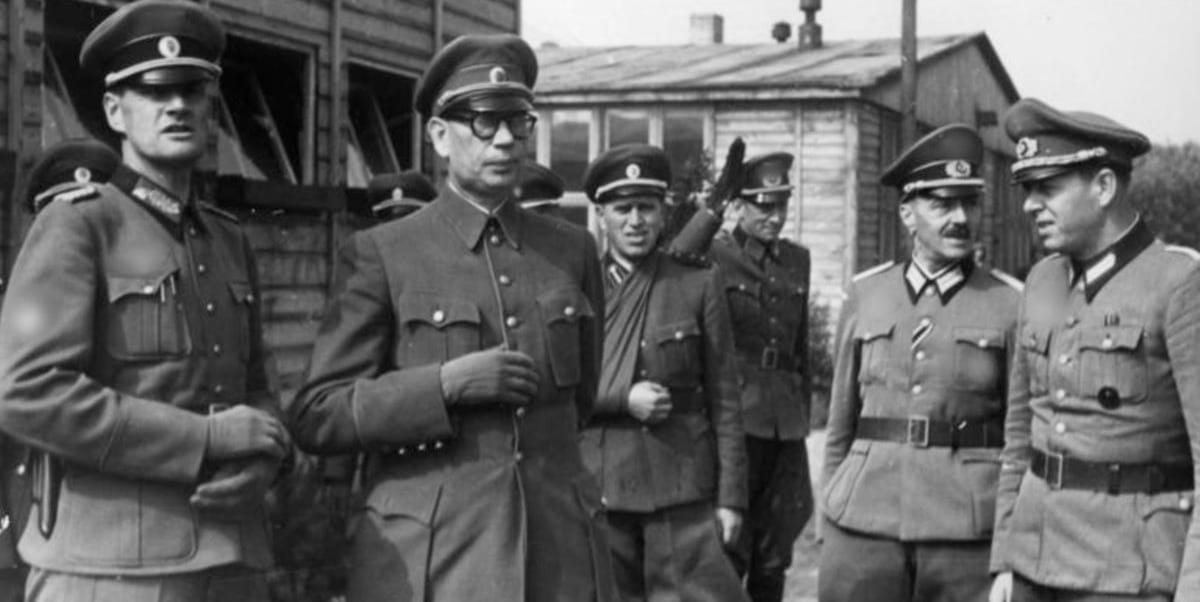In May 1945, at the end of the war, the Russian Liberation Army, also known as ROA, supported Czech resistance and helped to liberate Prague from German occupation. This army was formed mostly of the Soviet soldiers, earlier imprisoned in Nazi camps, and was headed by Andrey Vlasov ‒ once Soviet general, who was captured by German soldiers and later joined them to fight against Stalin regime.
During three days of fight for Prague more than 1 500 Czech citizens and over 300 ROA soldiers gave their lives defending the city. Considering the fact, in December 2019 Řeporyje municipality has taken the decision to honor these soldiers.
The same time, the initiative provoked negative reaction from Russia. At first the Russian Embassy in Czech Republic “reminded” that ROA soldiers were collaborators. At the end of April, 2020, after the memorial was built, the embassy commented on the issue once again emphasizing the fact that soldiers of Russian Liberation Army assisted war crimes. Following this remark, the embassy stated “attempts to revise the outcome of World War II” and pointed that the case took place on the eve of the 75th anniversary of liberation of Czechoslovak Republic from Nazism. According to interpretation of history Russia pushes for, the “outcome” of Prague uprising for the most part depended on the success of the Red Army. Consequently, commemorating the participation of ROA soldiers in the battle for Prague contradicts the statement that the role of the Soviet army in the events of those three days was crucial.
This conclusion is important when talking about Russian attempts to extend its sphere of influence on the European countries. To manipulate, Russia appeals to common Soviet past and produced by the Soviet ideology stereotype of “Victory”, according to which it was the Red Army that liberated Prague from Nazis, while the role of ROA in the event was always omitted. Now commenting on new memorial in Řeporyje and the replacement of statue of Ivan Konev, Russia – taking every opportunity to give its opinion on the every issue ‒ condemns Prague officials for “disregard for moral imperatives.” Russia is not able to refrain from emotional assessment representing irritation.
A memorial symbolizes particular historical fact, but not Vlasov or the army itself. In front of the commemorative plaque, with writing notifying a number of fallen soldiers, there is pillar three meters in height and small tank, covered by helmet, on its top – compared to the statue of marshal Konev and to the most of monuments of the Soviet period, this one hardly has something in common with a cult of personality. It is rather a sign of gratitude of Prague citizens to people who gave their lives liberating the city from Hitlerites.
And it should be mentioned that Czech Republic, being a sovereign state, is able independently determine its position on particular historical facts. When it comes to memorial to Russian Liberation Army, it relates to the history of Prague, but not the attitude of Russian officials towards the history of Prague.

